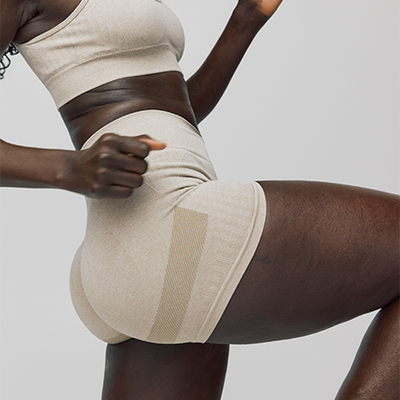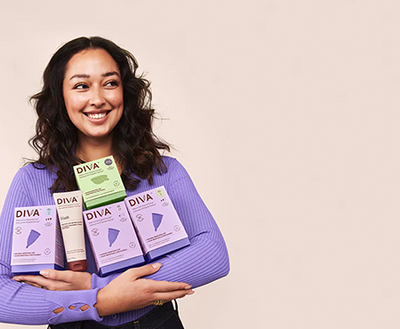
In this article /
All right girls, let’s talk about a few things. Don’t blush, I’m a gynecologist. If you can’t talk to me about it, who are you gonna ask? So, let’s talk about the vagina. This is your girl part. I have heard some crazy names for “down there” but let’s not forget … It is the vagina. And it is yours. No one else’s. So, it is up to you to take care of it. Luckily, it’s not hard. The less you do, the better.
The vagina is what we call a closed pouch. It just kind of dead ends. Your cervix is at the top of the vagina and is actually the lowest point of your uterus – a thick muscle wall organ that keeps your baby safe and warm during pregnancy; and gives you cramps and bleeding and feels like it is fighting a war in your gut during your period. The vagina is a thin skin canal with ducts that allow for normal vaginal discharge. Some discharge comes from the cervix; some comes directly from the walls of the vagina.
Discharge is normal. Say that out loud …. “Discharge is normal.”
Discharge may vary from clear to white or yellowish. This will depend on where you are in your normal monthly cycle. Around the time of ovulation (when your ovary releases a little egg and you are most likely to get pregnant), your discharge will be thin, clear, sticky and sometimes there is a lot. This usually happens about 2 weeks after your period has finished. Just before you start your period, you may notice a thicker, white / yellow discharge. This is all normal. There is no set amount for what a “normal amount” of discharge is. Some people just make more than others. It will change with age and with seasons and your diet and water intake and medicines you take and alcohol intake and so on.
When should you worry about discharge? If it has a funny color (greenish tint) or a funny smell (fishy is not normal). If you have any other symptoms like vaginal burning or itching or spotting or irregular bleeding. Then, you need to call your doctor. Don’t panic. It may not be a sexually transmitted infection. Yeast and bacterial infections are very common and are not from sexual contact. They just happen.
The vagina has normal healthy bacteria. Just like your gut, and your skin. When this normal bacteria is over producing or under producing, you may develop a yeast infection of bacterial infection. This is also why it is so important that you not douche. There is no reason for it. I promise. The vagina keeps itself clean. When you douche you are doing more harm than good by washing out all the good bacteria.
If you are prone to getting yeast infections or bacterial infections, be sure to ask your doctor for vaginal cultures. Sometimes we get an infection that is resistant to our most common medications. Sometimes we really do need to be tested for gonorrhea, chlamydia or trichomonas. Staying healthy, eating a good diet with whole foods, stop eating sugar and processed foods, take a probiotic supplement, or eat fermented foods like yogurt, sauerkraut, kimchi, kombucha, etc, will all help maintain a healthy immune system and a healthy vagina.
What’s a normal period? This is a tricky question, because there is a lot that is considered “normal.” most women have a period about once a month. Normal period cycles may be anywhere between 21 and 38 days. Even your own cycle may vary a few days every month. If you are pretty close to having a period once a month, this means you are most likely ovulating. This is important when you want to have a baby. Taking birth control pills may give you a regular, predictable period, but it prevents ovulation, so you won’t get pregnant. Normal bleeding is about 30 – 60 ml the entire week you bleed. Periods typically last 4 – 7 days.
But, if yours is a little shorter or a little longer that’s okay
Bleeding is usually heavy for 1 – 3 days and lighter the rest of the time. Period blood is not just blood. It is the lining of the uterus that is shedding (which had built up because of hormones getting ready to host a pregnancy. If the pregnancy doesn’t happen, the tissue lining of the uterus sloughs off). So, period bleeding may be bright to dark red, tissue or stringy, mucousy, little clots, large clots, pinkish, brownish. All of that is normal. When should you call your gynecologist?? If your periods last more than 10 days; if you know you lose more than 80ml a cycle; if you are 18 and have not started your period yet; or if your periods are extremely irregular and unpredictable.
One option for period care is the DivaCup
The DivaCup is a silicone menstrual cup that you place in your vagina during your period. It may sound crazy, but I’m telling you, it is such a good alternative! You can leave it in for 12 hours. So convenient! Wash it with soap and water (they make a special DivaWash that is safe and helps to maintain the integrity of the silicone). It is reusable every month. It is easy and comfortable to use for all activities … Yoga, travel, camping, water sports, cross fit, running, hiking, jumping, etc. Without sounding too dramatic, the DivaCup will change your life. Change. Your. Life!
A few things I’ve learned after using the DivaCup myself (and what I tell my patients) … It sits low in the vagina. It should sit right at the entrance of the vagina. It won’t be hanging out of the vagina, but it is low. The tip at the end of The DivaCup can be trimmed, but watch their guidelines on your cup. You don’t want to cut the entire end off. It may seem awkward at first, but just shove it up there.
There are two popular ways of folding your cup for insertion … The “C” fold (like the letter “C”, fold it in half) or the “Push Down” fold (like the number “7”, a diagonal fold). You will naturally just figure out what it is easiest for you. Once it’s in, rotate it around and feel the edges. You don’t want it to be folded at all. You want the cup fully opened. If you have problems with leaking, this is the most likely due to positioning and talking with your doctor or contacting the DivaCup can offer you some helpful tips! Few, few women may need to empty their cup earlier than 12 hours. It is not recommended that you keep it in longer than 12 hours without emptying and rinsing it. To remove it, grab the base and gently pinch it and sort of rotate it out. If you’re careful, it won’t even make much mess. Empty the contents into the toilet and wash with the DivaWash and water, then, reinsert. Once your period is over for the month, you can boil your DivaCup in water to give it a more thorough clean, but this is optional. Over time, your DivaCup will naturally discolor. No worries. And, the DivaCup should be replaced every year or so.
Take care of yourself, Take care of your vagina
I love what I do. It is a true honor to care for my patients. Patients have a particularly special relationship with their OB/GYN physicians. Not only during pregnancy (when you see each other often and then experience a miraculous event together), but even for gynecology visits, there is a trust that is essential between patient and physician. There are few things that make you as vulnerable as a visit to your GYN. Trust and comfort for that patient / physician relationship is foundational.





















